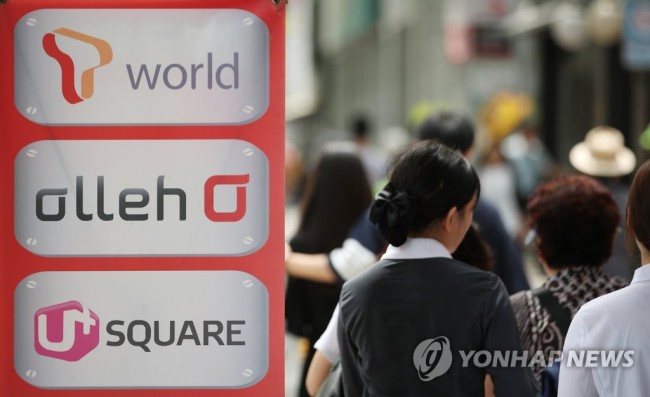South Korean mobile carriers on Thursday expressed concerns about the country’s top court’s ruling to reveal the breakdown of their operating costs to the general public.
The Supreme Court of Korea earlier Thursday upheld the ruling made by a local high court, which claimed consumers’ access to information regarding operating costs of the telecom companies is a right granted by the Constitution for a clearer understanding of fees being charged.
In other words, the court’s judgment could be interpreted as an acknowledgement that costs of telecom services should be public information.
The ruling requires mobile carriers to reveal the breakdown of their income statements and sales-related statistics during the period between 2005 and 2011.
 |
(Yonhap) |
It was the conclusion of a 7-year court case to decide a suit filed by local activist group People’s Solidarity for Participatory Democracy in 2011.
Two mobile operators, SK Telecom and LG Uplus, expressed concerns following the ruling, although they said they respected the decision.
“We regret that such ruling could raise concerns of private companies’ trade secrets being exposed,” said an SKT official.
An LG Uplus official made a similar comment.
KT, which was privatized in 2002, took a slightly different stance from its two rivals, saying “KT respects the top court’s decision” without further comments.
But on condition of anonymity, industry insiders expressed stronger discontent about the ruling.
“Making mobile carriers’ unit costs is almost an unprecedented case worldwide,” said an official. “Telecom services provided by private operators are not public goods like electricity, gas or water.”
The industry sources said that the telecommunication market is an intensely competitive market where the operators butt heads with each other over prices and services. Prime costs therefore cannot be the yardstick to deem whether the final cost is appropriate, they said, adding that they were calculated based on the industry’s changing environment and demands of the users, all of which are unique business strategies of each firm and therefore should be kept confidential.
In 2011, People’s Solidarity for Participatory Democracy asked then-Korea Communications Commission to make public the operating costs of the three telecom firms, claiming that mobile services have become a daily necessity for most people.
The KCC rejected the request, saying that the figures could contain some business secrets of the private companies.
However, the judges on Thursday said in the ruling statement that telecom services provided by using public assets such as frequency bands, have significance in people’s daily lives and society.
“High quality services are needed to be provided at reasonable prices for the public interest,” the statement said.
Although the latest ruling is restricted to the revelation of some of the earnings documents during a certain period -- related to sales of 2G and 3G services -- the telecom industry is more worried about possibly mounting pressures on them to cut mobile service fees.
Ahn Jin-geol, leader of the activist group, pressed the telecom industry to voluntarily unveil their cost breakdowns of 4G services afterward at a press conference on Thursday.
“If the companies and government do not disclose the LTE costs voluntarily, we will take additional steps to demand they are revealed,” Ahn said.
By Song Su-hyun (
song@heraldcorp.com)








![[Today’s K-pop] Blackpink’s Jennie, Lisa invited to Coachella as solo acts](http://res.heraldm.com/phpwas/restmb_idxmake.php?idx=644&simg=/content/image/2024/11/21/20241121050099_0.jpg)